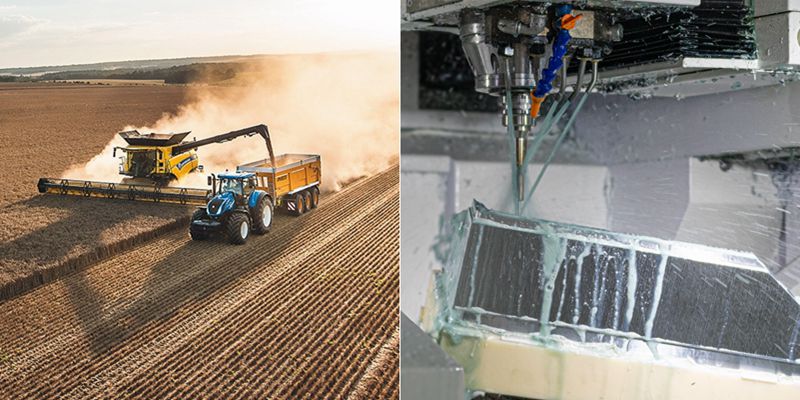- January 26, 2024
The agricultural industry uses Computer Numerical Control (CNC) machining to produce parts. This technology provides accuracy and efficiency, facilitating the production of premium components for various uses, which can create complex shapes and tools needed in the agricultural industry.
Utilizing already programmed computer software, this CNC technique automates the manufacturing processes of drilling, shaping, and cutting. Consequently, CNC machining for agriculture ensures the production of high-quality agricultural tools and equipment.
In this article, we will highlight the benefits of CNC machining in the agricultural industry and the different CNC processes used in making farm equipment parts.
Benefits of CNC Machining in the Agricultural Industry
In the agriculture sector, CNC machining is a popular manufacturing technique that brings about improvements and fast production of parts. Here are a few of the main advantages.
Highly Customizable
Whether it’s a custom CNC solution for agriculture, like a custom irrigation component, shaft manufacturing, or a specialized plow, CNC machining offers the freedom to make parts to fit specific farming requirements.
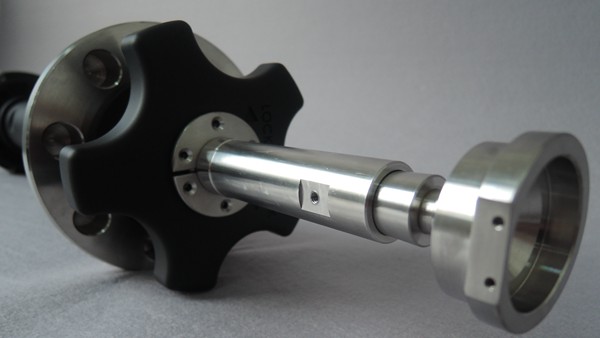
Precise Machined Parts
By producing parts with precise specifications, CNC technology reduces mistake rates and guarantees the smooth and effective operation of agricultural machinery. Numerous components require complex shapes with extremely precise geometric tolerances. When it comes to engine components, nozzles, and special gears, CNC machining can create them with enough precision.
In addition, when assembling or repairing machinery, the produced precise part can be ensured that all the parts fit together correctly, minimizing the need for additional changes or adjustments.
Highly Efficient
The benefits of automated CNC procedures include faster production times and round-the-clock operation, resulting in output maximization to meet planting and harvest season deadlines.
Versatility
Since CNC machines can work with a wide range of materials, including metals and plastics, they are perfect for producing numerous CNC precision farming components for agricultural equipment.
Flexible Rapid Prototyping
CNC machining can make prototypes fast for farm equipment to advance in farming technology. It is useful to accelerate the development of new tools and equipment for agriculture.
Faster Repair Times
Because CNC machining is so quick, worn-out or broken components can be repaired more quickly, reducing machine downtime and maintaining efficient agricultural operations.
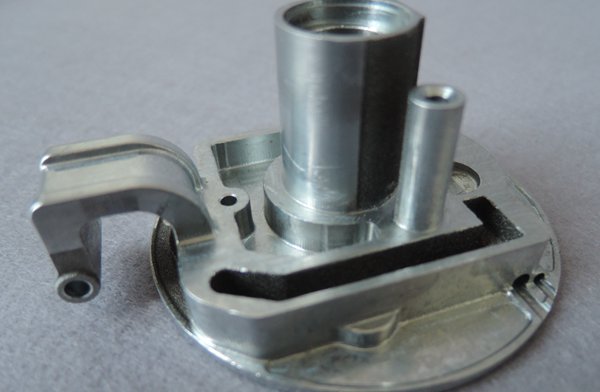
Applications and Examples of CNC Machined Agricultural Components
Like CNC machining in the energy industry, the use of CNC machining in agriculture has produced many benefits. The following are a few examples of the kinds of agricultural parts produced using CNC machining.
- Pulleys
- Tubing
- Sprockets
- Spray System components
- Air collectors
- Chain guides
- Gears
- Pulleys
- HDPE Flooring
Different Machining Processes for Manufacturing Agricultural Parts
The production of agricultural parts has been improved by CNC machining techniques, which prioritize efficiency and accuracy. The materials and tolerances required for farming equipment can be made for each of these procedures. Below is a breakdown of the various CNC machining techniques used in the manufacturing of parts for agricultural machinery.
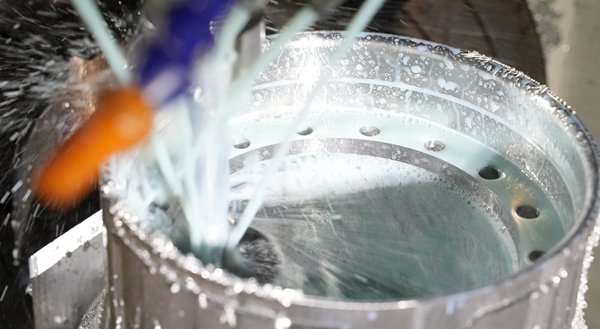
CNC Milling
CNC milling machines remove material from a workpiece using rotating cutting tools. This method is perfect for manufacturing intricate curves, channels, and slots with precision. It is ideal for producing parts like gearbox housings and engine components.
CNC Turning
CNC turning shapes the exterior and interior of a material by rotating it against a cutting tool with lathes. This is especially effective for creating cylindrical parts, such as hubs and shafts, frequently used in agricultural equipment.
CNC Drilling
The use of CNC technology for precision drilling ensures uniformly sized and precisely positioned holes in components such as irrigation system parts and equipment frame structural elements, hence enabling flawless installation.
Electrical Discharge Machining (EDM)
EDM is utilized for materials that are difficult to machine using conventional methods. It is incredibly accurate and perfect for creating complex CNC parts for agricultural machinery, such as intricate gears and nozzle details.
Common Materials Used in CNC Machining for Agricultural Industry
There is a wide variety of materials that can be utilized to build dependable and efficient agricultural equipment. Because of the outdoor conditions in which the machinery operates, choosing the right materials for CNC machining is essential to the agricultural components. The following materials are frequently used in the production of precision CNC agricultural parts.
Stainless Steel
Stainless steel is well-known for its strength and resistance to corrosion and is often used in the production of items like fasteners and valve components that need to be durable and resistant to weather elements upon exposure.
Carbon Steel
Carbon steel is used for structural elements and tools that need to be extremely robust, such as cultivator shanks and plow frames.
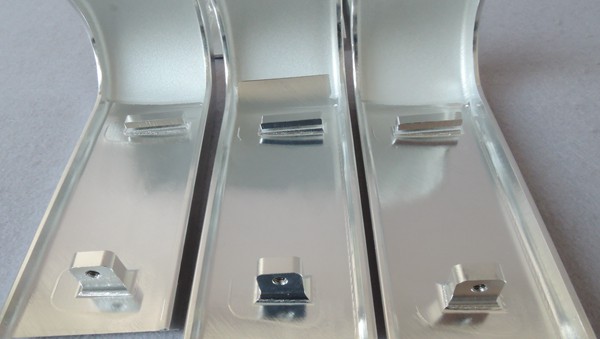
Aluminum
Aluminum is lightweight and highly valued for its corrosion resistance. It is frequently utilized for engine components and body panels of agricultural machinery, which contribute to the total weight reduction of agricultural machinery.
Brass
Brass is perfect for fittings and connectors within fuel systems and in other scenarios where the danger of combustion must be minimized. Agriculture brass machined parts are also used in the combustion chambers due to their low friction and non-sparking qualities.
Plastics and Composites
Certain composites and polymers are strong, adaptable, and corrosion-resistant; these qualities are applied to a range of parts such as ducts, enclosures, and housings. These materials frequently increase part durability and lower maintenance requirements.
Practical Tips for Optimizing CNC Machining for Agricultural Parts
Enhancing productivity, reducing expenses, and ensuring the longevity of manufactured components can all be achieved by optimizing CNC machining procedures for the production of agricultural parts. Here are useful suggestions to maximize CNC machining for agriculture.
Choose the Right Materials
Examine and select CNC machining materials that are affordable and readily available. These materials should also meet the mechanical specifications for strength and resistance to corrosion, ensuring component durability in challenging farming conditions while reducing waste and costs.
Metals like steel, aluminum, and stainless steel are frequently used in agricultural settings because of their resistance to corrosion and are particularly valuable given their exposure to severe chemicals. Due to its lightweight and excellent machinability, aluminum is a great material for less complex parts when weight is a concern.
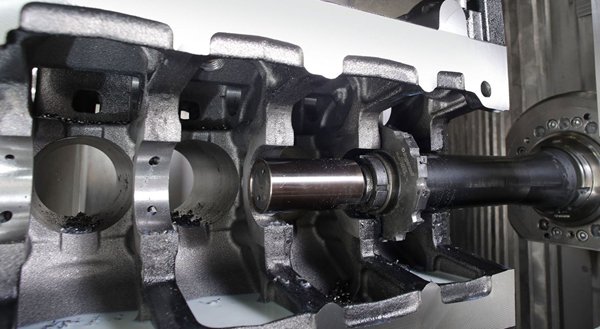
High-Quality Cutting Tools and Workholding
To increase precision in the agricultural industry CNC machining and lessen vibration, invest in robust work-holding techniques and high-quality cutting tools. This will result in improved part precision and the production of high-performance machinery.
Surface Finishes
Surface finishing is an important post-machining step in the production of CNC agriculture machined parts. Consider the finish needed for the part, often a basic finish will suffice for functional agricultural components, consequently saving production time.
Select Tight Tolerance When Only Need
Tight tolerances are linked to high precision but are more expensive. It’s critical to identify the specific agricultural machinery applications where this level of precision is necessary. While brackets and shields might not require precise tolerances, bearings, custom couplings, and pistons often do to guarantee correct fit and operation within an assembly.
Selectively applying tight tolerances can save on manufacturing costs considerably without sacrificing functionality. To ascertain the required level of precision, it is important to evaluate the final purpose of each component.
Avoid Deep Cavities
Deep cavities in parts can be difficult and time-consuming to machine, which can raise expenses and increase the possibility of mistakes. When designing parts, try to avoid deep cavities as much as possible.
You can also try different approaches, such as joining smaller components together or using several simpler parts rather than one complex one. This decision also makes it easier and more affordable to manufacture and assemble.
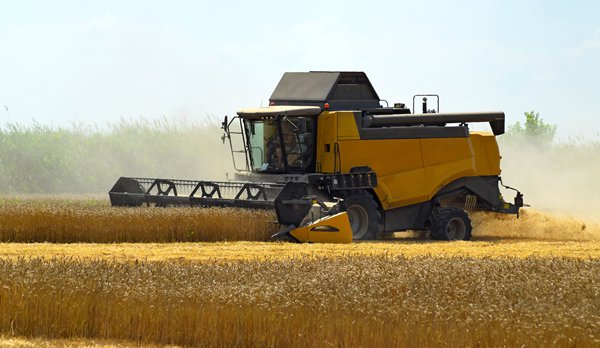
How to Choose the Right CNC Company for Your Machined Agricultural Projects?
Selecting the right CNC machine shop for agricultural machined parts is essential to guarantee the accuracy, robustness, and high-quality performance of the components. The following considerations can help you choose a reputable business for your agricultural CNC machining requirements.
Extensive Knowledge of Material
Ensure the business has a thorough understanding of the materials frequently utilized in agriculture, and can provide practical advice on the ideal options in terms of budget and machining requirements. This is especially true for agricultural tools as they need to remain durable when subjected to frequent weather exposure and heavy use.
Advanced Equipment and Technology
Verify that the business uses cutting-edge CNC equipment capable of precisely executing a range of tasks. It is possible to produce parts with higher accuracy and better-quality finishes with high-tech equipment.
Lead Time Speed and Flexibility
Examine the CNC machining companies in agriculture’s track record of meeting deadlines. It is imperative to have a company that can deliver quick turnaround times without sacrificing quality, particularly during the busiest agricultural seasons.
Quality Assurance Procedure
Examine the quality control practices of the CNC machining company. A dedication to excellence, exemplified by certifications such as ISO standards, indicates reliability in manufacturing components that meet stringent agricultural requirements.
Depth of Experience in the Agricultural Industry
Seek out a CNC precision machining business that has experience in precision CNC machining for the agriculture industry. Experts are aware of the specific challenges and can supply parts that can withstand harsh farming environments.
Ability to Accommodate Future Growth
The CNC provider must be able to manage the scope of your project and accommodate growth in the future. This ensures they can handle the agriculture industry’s seasonal demands and large orders.
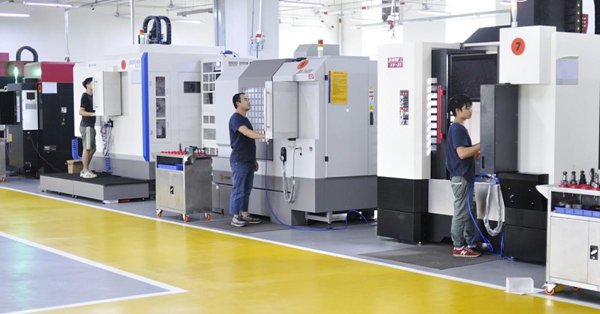
Get Custom Agricultural Parts at WayKen
WayKen offers comprehensive CNC machining services that are customized to fit the specific requirements of farming agricultural machined parts. We employ strict quality control to ensure the machined parts meet our customer’s requirements. Our engineers also provide professional advice and machining solutions that achieve a cost-effective and high-quality result. Now choose WayKen for dependable and effective machining services to support the production and reliability of your agricultural equipment.
Conclusion
CNC machining enables the creation of accurate and long-lasting parts for crucial machinery, greatly enhancing the agricultural sector. This technology has improved productivity, reduced downtime, and enabled part customization for specific farming requirements.
The CNC technology will continue to be essential as farming techniques evolve to meet the industry’s increasing demands and ensure the reliability and productivity of agricultural operations.
FAQs
Which types of CNC machines are commonly used in the agricultural Industry?
CNC milling machines and CNC turning lathes are among the various types of CNC machines that are frequently utilized in the agricultural sector. These machines are usedl for the production of precision parts for agricultural machinery, including housings, shafts, gears, and structural pieces.
What are the common applications of CNC milling in agriculture?
Numerous applications for CNC milling exist in the farming and agricultural sectors. These applications encompass different aspects of the farming process, including agricultural machinery, food processing, livestock farming, and crop production.
What are the specific parts commonly manufactured using CNC machining for agriculture?
A few specific items that are frequently produced for the agricultural sector utilizing CNC machining include parts for the irrigation system, harvesting equipment, sprockets and gears for tractors, PTO (power take-off) shafts and components, and components for hydraulic systems.

